At a glance
Vitamin C (L-ascorbic acid) is a little complicated but the results on the skin with this ingredient are so impressive that it’s definitely worth the struggle!
Vitamin C (L-ascorbic acid) products are everywhere at the moment. It’s not really surprising because this ingredient is really magic to give radiance to the complexion, the famous glow that everybody wants these days. But it’s also a very unstable ingredient that needs a certain environment to be able to deliver all its benefits.
Have you ever heard of oxidative stress? Free radicals? And photo-aging?
All this doesn’t seem great to preserve the skin’s youth, does it?
The good news is that vitamin C can fight all these phenomena that make our skin looks dull!
Vitamin C is part of a category of expert anti-aging preventive ingredients called antioxidants.
Vitamin C is probably the most effective antioxidant to give an immediate boost to the skin. And it’s a real glow-giver!
But beware, all vitamins C are not equal.
The most efficient, the vitamin C L-ascorbic is sadly quite unstable and it needs some very precise conditions to deliver all its powerful antioxidant power to the skin.
What is Vitamin C:
Vitamin C is a great anti-aging ingredient that protects the skin against environmental aggressions that can make it look dull and age faster. It’s part of the antioxidant category, these very effective anti-aging ingredients. They really help to prevent the aging process and protect the skin.
[…] even if you eat kiwis and oranges all day long, your skin won’t really benefit from the vitamin C they contain.
Basically, antioxidants are molecules capable of preventing the skin oxidation. The oxidation phenomenon is essentially responsible for the production of free radicals, some unstable molecules which can cause chain reactions/ damages to the skin, sources of accelerated aging.
The oxidation of the skin is caused by several factors: stress, pollution, tobacco, infections, inflammations, sun exposure … in short, a normal, busy life!
Regarding vitamin C, unfortunately, even if you eat kiwis and oranges all day long, your skin won’t really benefit from the vitamin C they contain. To be effective, Vitamin C must be applied on the skin, topically.
Vitamin C benefits:
There are several vitamin Cs used in cosmetics but the most effective and the best known one is L-ascorbic acid. This specific vitamin C is intensely antioxidant: it protects the skin against the formation of free radicals which can result in accelerated aging.
Moreover, vitamin C helps to protect the skin from UV rays, not by replacing sunscreens (it does not protect the skin against UV rays) but by increasing their power by about 30%, in addition to its antioxidant action. It’s actually very beneficial for the skin to use a sunscreen after applying a vitamin C product because these two ingredients together have a real protective shield effect on the skin.
Vitamin C also helps to boost the production of collagen and elastin fibbers, which support the skin and give a plump aspect. So, it’s anti-wrinkles, indirectly.
As a bonus, it also helps to neutralize the enzymes that decrease the collagen present in the skin, day after day. It preserves the density of the skin and helps to maintain its bouncy appearance.
L-ascorbic acid also reduces the melanin oxidation, the molecule responsible for skin coloration. It reduces the appearance of darker spots or areas that makes the skin look dull (= hyperpigmentation), and it also moderates the production of tyrosinase, the enzyme that activates the melanin production.
Vitamin C is finally a glow booster because it helps to improve the quality of the structure of the skin as well as the cutaneous microcirculation. A good circulation allows the nutrients essential to the skin health to be transported in the upper layers of the epidermis and the skin can have this radiant healthy glow we all want! (So it’s perfect if you’re a smoker or if you live in a very polluted environment)
The issue with Vitamine C:
L-ascorbic acid is certainly the most effective and purest vitamin C but unfortunately, it’s also the most unstable form. Especially when it’s used in a cosmetic formula containing water, it has a big tendency to become inactive as quickly as it has arrived.
So in order to stay active and stable in a cosmetic formula which contains water, vitamin C L-ascorbic needs several conditions.
First, the formula has to be at an acidic pH, ie below 3.5. And the vitamin C L-ascorbic has to be at a concentration of at least 10% (up to 30%).
Also, to help stabilize L-ascorbic acid, many labs add one or more antioxidant ingredients to the formula, usually vitamin E and /or ferulic acid.
This combination of ingredients is indeed more effective to protect the skin but it also helps to stabilize the vitamin C in a cosmetic formula.
You can also add exfoliating ingredients to increase their penetration deeper into the skin (other acids, enzymes …).
Beware, however, most products based on L-ascorbic acid don’t have a very long life. Once opened, you need to use them quickly because after 6 months max, even stabilized, the vitamin C oxidizes and using oxidized vitamin C is useless. So it’s definitely something you want to avoid.
When you purchase a product based on vitamin C, it’s therefore better to ensure that it’s “fresh” for the same reasons.
In summary, for a vitamin C / L-ascorbic acid product to be effective in a water-based formula, it must:
– be in a formula with a pH of 3.5 or less,
– have a concentration of a L-ascorbic acid between 10 and 30%,
– be paired with other antioxidant ingredients in its formula (vitamin E, ferulic acid …) for more stability,
– be in a packaging which protects the formula from light/ UV rays and air (so no transparent glass),
– be used quickly (maximum 6 months after opening) and be “fresh” (really no need to stock up with this product).
How to use Vitamin C:
Because vitamin C has an antioxidant effect, I usually use it in the morning. Nothing wrong with applying a vitamin C product at night but since it boosts the effectiveness of sunscreens, it seems more logical to use it at the beginning of the day when the skin needs maximum protection.
Vitamin C has a 72h reservoir effect, meaning it remains effective on the skin even if you apply it once every 3 days. (Even if you rub the skin and if you wash it) However, I prefer to apply it every day to avoid losing my product (which as we’ve seen, has a limited life).
Also, since it requires a certain percentage to be effective, I prefer the more concentrated formulas that are usually in a serum form (more than cream, usually less concentrated and greasier). Ideally, I favour the vitamins C paired with vitamin E and / or ferulic acid, two other antioxidants that boost its effectiveness.
I usually apply it immediately after I’ve cleansed the face, on dry skin, because vitamin C is more effective in an environment with an acid pH and most of the serums and/or moisturizing creams have a pH that is slightly too high with the risk of diminishing its effectiveness. So I prefer to apply it before these, also because I want my skin to benefit from my vitamin C serum right away, without any other skincare products to “dilute” its effect.
I read here and there that it’s recommended to wait a few minutes after you’ve applied your vitamin C serum to let it absorb. Personally, I usually wait a bit before going on with the rest of my routine but the serum I’m using absorbs rather quickly into my skin, so my waiting time rarely exceeds 5 minutes (= the time it takes to brush my teeth, for example).
Product recommendations:
You can find my detailed review of the Geek & Gorgeous C-Glow vitamin C serum here.
You can find here my detailed review of the Vichy LiftActiv Peptide-C Ampoules Serum.
You can find here my detailed review of the Paula’s Choice C15 Super Booster.
You can find here my detailed review of the Maelove The Glow Maker Antioxidant Serum.
You can find here my detailed review of the Skinceuticals C E Ferulic Serum.
You can find here my detailed review of the Drunk Elephant C-Ferma.
A possible dupe for the Skinceuticals serum, the formula is extremely similar. It contains 20% of L-ascorbic acid, 1% of vitamin E, 0.5% of ferulic acid, some hyaluronic acid and its pH is 2.4.
The main difference with the Skinceuticals serum is in the stability and the shelf life of the formula. You need to use it fairly quickly (2 to 3 months maximum) and the brand even recommends to place it in the fridge during use. It’s definitely not the most stable formula on the market, which can be problematic with this ingredient.
The texture is quite liquid, it’s quickly absorbed into the skin and doesn’t leave a greasy feeling on the skin. The formula is relatively simple and there are fewer natural extracts than in the Drunk Elephant serum.
The value for money is great, though! It retails for $15 (up to $25) for 30ml.
I also tried one of The Ordinary Vitamin C products, the Vitamin C Suspension 23%+ HA Spheres 2%, but it was not the most pleasant product to use.
The texture is grainy and quite gritty (you can feel the vitamin C powder inside the formula). It’s also greasy because it doesn’t contain water (which makes this product more stable than the others, though).
The brand recommends to mix it with their oily Resveratrol solution to bring in more antioxidants. That’s what I did but this combo was even greasier.
Regarding the feeling on the skin, it stings a little when you apply it, especially after a few days in my case, so it’s not the most pleasant product to use.
The result is there (it’s a brightening product, no doubt) but I think there are nicer options with vitamin C available on the market (like the products above), even if the price of this one is clearly unbeatable ($5.80 for 30ml).
Five vitamin C products I wouldn’t recommend:
– By Wishtrend Pure Vitamin C 15% with Ferulic Acid:
I explained why I wasn’t convinced in my dedicated review.
– Pixi Vitamin-C Serum:
I explained why I’m not a fan in my dedicated review 😉
– Klairs Freshly Juiced Vitamin C Serum:
A concentration of 5% L-ascorbic acid insufficient to be effective, a pH that is too high (3.8), the absence of antioxidants in the formula to stabilize L-ascorbic acid and a transparent glass bottle which doesn’t protect the formula from light and UV rays. All these aspects make me quite suspicious about the stability of this product…
– Vichy Liftactiv:
On a positive note, there is a concentration of 15% of L-ascorbic acid and the presence of vitamin E to stabilize it. But I note in the formula a very strong presence of denatured alcohol potentially irritating for the skin and the format of the product allows only 10 days of use, which certainly guarantees the freshness of the product throughout the course of the treatment but that makes it one of the most expensive vitamin C serums on the market: $28.50 for 10 days. So if you want to use it for 2 to 3 months, the necessary amount of time to benefit from all the positive effects of vitamin C, you would have to spend $200 to $250.
– Clinique Fresh Pressed Daily Booster pure vitamin C 10%:
10% of L-ascorbic acid, a formula suitable for sensitive skin and a packaging with a system that mixes vitamin C with the rest of the formula when you want to use it to ensure its freshness. Each bottle lasts 1 week. Note, the presence of silicone in the formula for those who are sensitive to it (like me).
But on the other hand, there are no other antioxidants in the formula to help stabilize the vitamin C and most of all, it’s the same problem as for the Vichy serum, it’s very expensive if you want to use it more than a few days. For 1 month, the treatment with 4 vials retails for $76.50, so if you want to do a treatment for 2-3 months, you will have to spend around $200.
Reviews sneak peeks:
Paula’s Choice C15 Super Booster
“This concentrated booster with 15% pure vitamin C dramatically brightens uneven skin while improving the appearance of wrinkles and fine lines.
– Reveals a more radiant complexion.
– Vitamin C visibly brightens skin.
– Feather-light, liquid formula absorbs quickly.
– Use alone or add to your moisturizer or serum.”
Pros
– it contains 15% of vitamin C L-ascorbic,
– the low pH which allows the formula to be effective (3.0),
– the presence of vitamin E and ferulic acid, both of which stabilize vitamin C,
– it doesn’t dehydrate the skin (thanks to some moisturizing active ingredients in the formula),
– it protects the skin thanks to its antioxidant properties,
– it maintained the radiance of my skin,
– it also helps to smooth the texture of my skin,
– I appreciate its boosting protection effect when combined with a sunscreen product,
– the super-liquid texture is easily absorbed, even with my combination skin,
– no added fragrance or dyes,
– it’s easy to find online.
Cons
– it leaves a slightly sticky effect,
– its price, especially for its size, it’s quite expensive,
– this goes for all the vitamin C L-ascorbic acid serums, but you can’t keep the product very long (6 months maximum after opening) because this ingredient isn’t very stable,
– you have to apply a high SPF during the day when you use this product (personally, it’s something I do regardless but some may see it as a con).
Details
Maelove The Glow Maker
“Serums are confusing, which is why we spent years perfecting one complete face serum that gives you hydrated and brightened skin all day long.
Introducing The Glow Maker featuring Vitamin C, E, Ferulic Acid and Hyaluronic Acid.”
Pros
– it contains 15% of vitamin C L-ascorbic,
– the low pH which allows the formula to be effective (3.2),
– the presence of vitamin E and ferulic acid, both of which stabilize vitamin C,
– it doesn’t dehydrate the skin (thanks to some moisturizing active ingredients in the formula),
– it protects the skin thanks to its antioxidant properties,
– it maintained the radiance of my skin,
– it also helps to smooth the texture of my skin,
– I appreciate its boosting protection effect when combined with a sunscreen product,
– the super-liquid texture is easily absorbed, even with my combination skin,
– doesn’t leave a sticky effect,
– no added fragrance or dyes,
– its very affordable price, especially compared to its competitors in the market!
Cons
– if you don’t live in the United States, it’s very difficult to get your hands on it. The brand doesn’t deliver (yet?) worldwide.
– it’s often the victim of its own success and as a result, it’s regularly out of stock,
– this goes for all the vitamin C L-ascorbic acid serums, but you can’t keep the product very long (6 months maximum after opening) because this ingredient isn’t very stable, even though I found that the formula of this one didn’t oxidize quickly at all,
– you have to apply a high SPF during the day when you use this product (personally, it’s something I do regardless but some may see it as a con).
Details
Skinceuticals C E Ferulic
“C E Ferulic features a synergistic antioxidant combination of 15% pure vitamin C (L-ascorbic acid), 1% vitamin E (alpha-tocopherol), and 0.5% ferulic acid to enhance protection against environmental damage caused by free radicals that can contribute to atmospheric aging. This vitamin C serum helps neutralize free radicals induced by UVA/UVB,…
“C E Ferulic features a synergistic antioxidant combination of 15% pure vitamin C (L-ascorbic acid), 1% vitamin E (alpha-tocopherol), and 0.5% ferulic acid to enhance protection against environmental damage caused by free radicals that can contribute to atmospheric aging. This vitamin C serum helps neutralize free radicals induced by UVA/UVB, infrared radiation (IRA), and ozone pollution (O3), which may lead to visible signs of accelerated skin aging. In addition to antioxidant protective benefits, C E Ferulic improves signs of aging and photodamage, the appearance of lines and wrinkles, and the loss of firmness, while brightening skin’s complexion.
– Provides advanced environmental protection by neutralizing damaging free radicals,
– Visible anti-aging benefits, such as the improvement of the appearance of lines and wrinkles, loss of firmness, and brightens skin’s complexion,
– Neutralizes free radicals on the upper layer of the skin to help prevent the impact of ozone damage to skin,
– Once absorbed, this vitamin C serum remains effective for a minimum of 72 hours,
– Paraben-free and ideal for normal, dry, and sensitive skin types,
– Tested suitable for use post-laser, always consult with a physician for individual post-procedure care.”
Pros
– the vitamin C L-ascorbic concentration of 15%,
– the low pH which allows the formula to be effective (between 2.5 and 3.0),
– the presence of vitamin E and ferulic acid in the formula which stabilizes vitamin C,
– it doesn’t dry the skin out (thanks to the hyaluronic acid in the formula), but I wouldn’t say it’s moisturizing though,
– it protects the skin thanks to its antioxidant properties,
– it’s very brightening,
– it evens the skin texture,
– the boosting effect of the protection when it’s paired with a sunscreen product,
– the texture is super light and easily absorbed by all skin types, even oily skin; it’s great if you do skincare layering,
– non-comedogenic, it doesn’t clog the pores,
– without added synthetic fragrance or dye.
Cons
– this goes for all the vitamin C L-ascorbic acid serums, but you can’t keep the product very long (6 months maximum after opening) because this ingredient isn’t very stable, even if C E Ferulic is one of the more stable vitamin C serums in the market,
– you have to apply a high SPF during the day when you use this product (personally, it’s something I do regardless but some may see it as a con),
– the extremely high price; C E Ferulic is one of the most expensive vitamin C serums on the market,
– the packaging is not ideal, I would have preferred a pump for a better protection of the formula,
– the weird scent of the product, it smells like hot-dog (= a very chemical sausage). It’s quite unexpected for a beauty product!
Details
Drunk Elephant C Firma Day Serum
« A super-potent vitamin C day serum packed with a powerful antioxidant complex, essential nutrients, fruit enzymes and a chronopeptide that provides the benefits of vitamin D, all working together to firm and brighten the appearance of skin while improving the signs of photoaging.
This revolutionary serum, jam-packed with a 15% potent…
« A super-potent vitamin C day serum packed with a powerful antioxidant complex, essential nutrients, fruit enzymes and a chronopeptide that provides the benefits of vitamin D, all working together to firm and brighten the appearance of skin while improving the signs of photoaging.
This revolutionary serum, jam-packed with a 15% potent antioxidant complex of l-ascorbic and ferulic acids plus vitamin E, helps neutralize pollution, environmental stressors and damaging free radicals while replenishing lipids and visibly reducing the appearance of dark spots and wrinkles. Uniquely formulated with pumpkin ferment and pomegranate extracts, C-Firma™ enzymatically dissolves dead surface skin cells for a smoother texture. Sodium hyaluronate crosspolymer quickly penetrates the skin and provides intense hydration. The result is a noticeably diminished appearance of photodamage, replaced by incredible radiance and luminosity.
C-Firma™ has a reservoir effect, which means it will stay active on the skin for up to 72 hours and cannot be washed or rubbed off. C-Firma™ has a pH level of 3.3 – 3.5, which Drunk Elephant believes is the key to a non-irritating, effective formulation that delivers real results.»
Pros
– the vitamin C L-ascorbic concentration of 15%,
– the low pH which allows the formula to be effective (between 3.3 and 3.5),
– the presence of vitamin E and ferulic acid in the formula which stabilizes vitamin C,
– it doesn’t dry the skin out (thanks to the moisturizing ingredients in the formula),
– it protects the skin thanks to its antioxidant properties,
– it’s very brightening,
– it evens the skin texture,
– the boosting effect of the protection when it’s paired with a sunscreen product,
– the texture seems oily at first but it’s actually quite light and easily absorbed by all skin types, even oily skin,
– non-comedogenic, doesn’t clog the pores,
– without added synthetic fragrance or dye,
– the packaging is very well thought out: it’s pretty, protects very well the formula and allows an optimal use of the product,
– theoretically, it can be mixed with the other products of the Drunk Elephant range to save time during the application (I don’t do it because I don’t want to reduce its strength but the brand recommends it).
Cons
– this goes for all the vitamin C L-ascorbic acid serums, but you can’t keep the product very long (6 months maximum after opening) because this ingredient isn’t very stable,
– you have to apply a high SPF during the day when you use this product (personally, it’s something I do regardless but some may see it as a con),
– the price (even if, when you compared to the competition, the other vitamin C serums are usually at the same price range for the same quantity).
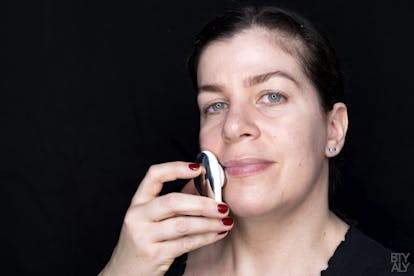
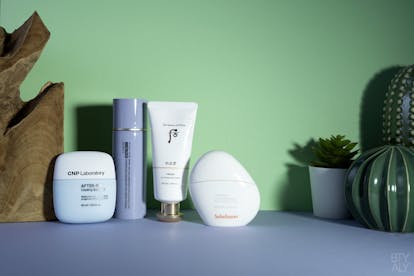
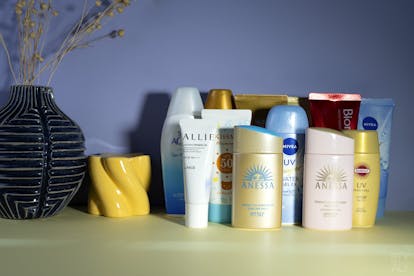
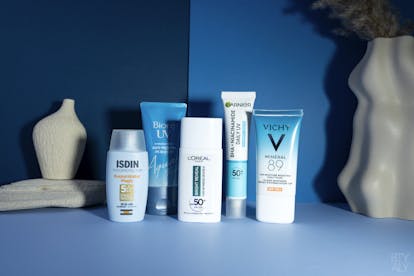
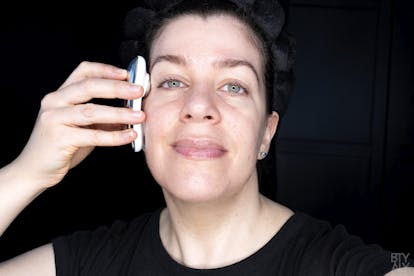
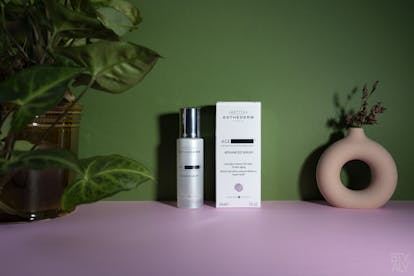
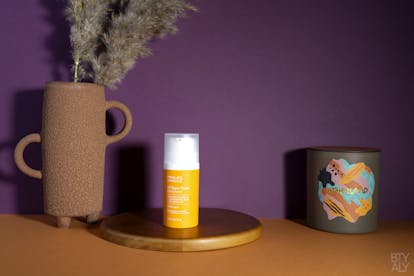
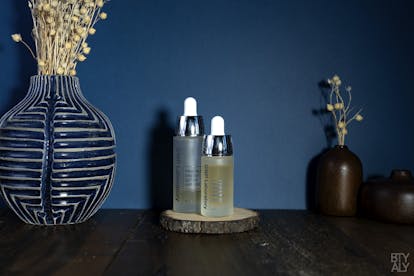
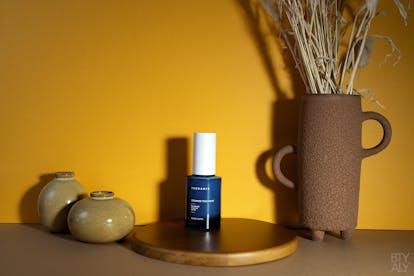
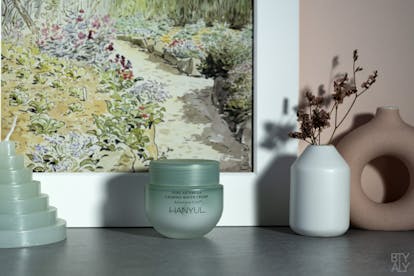
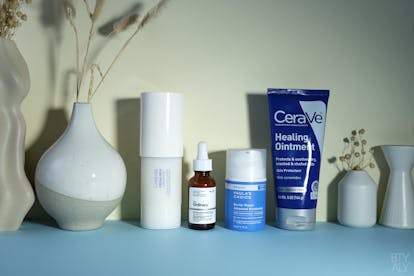
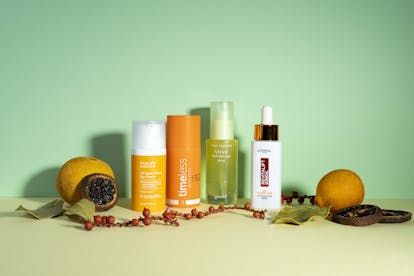
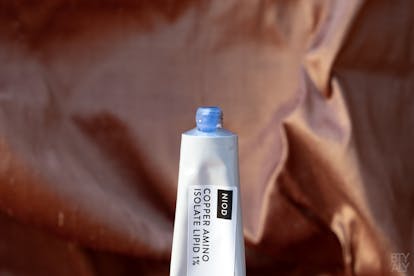
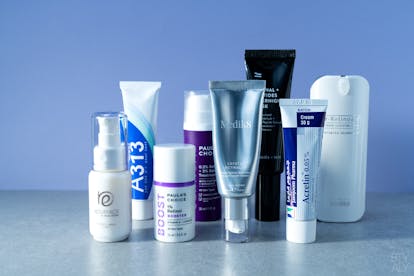
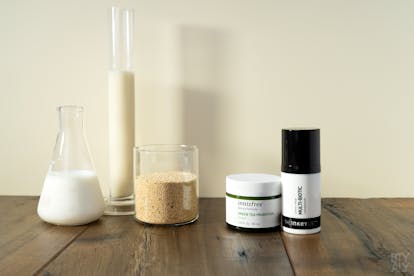
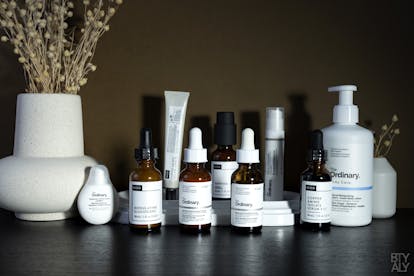

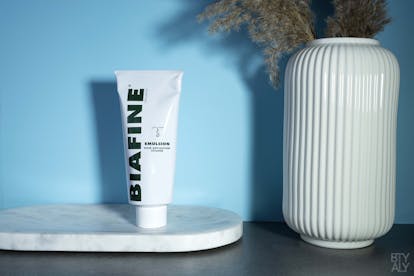
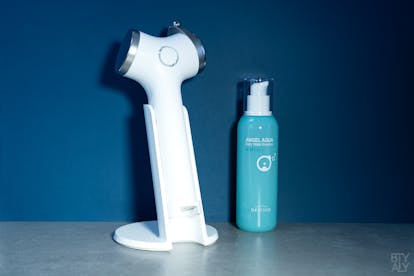
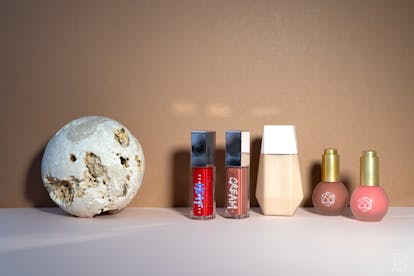
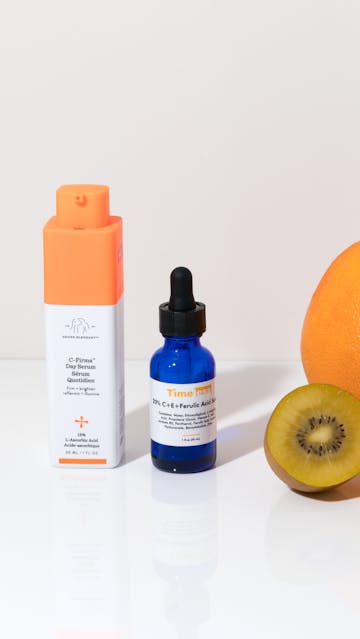

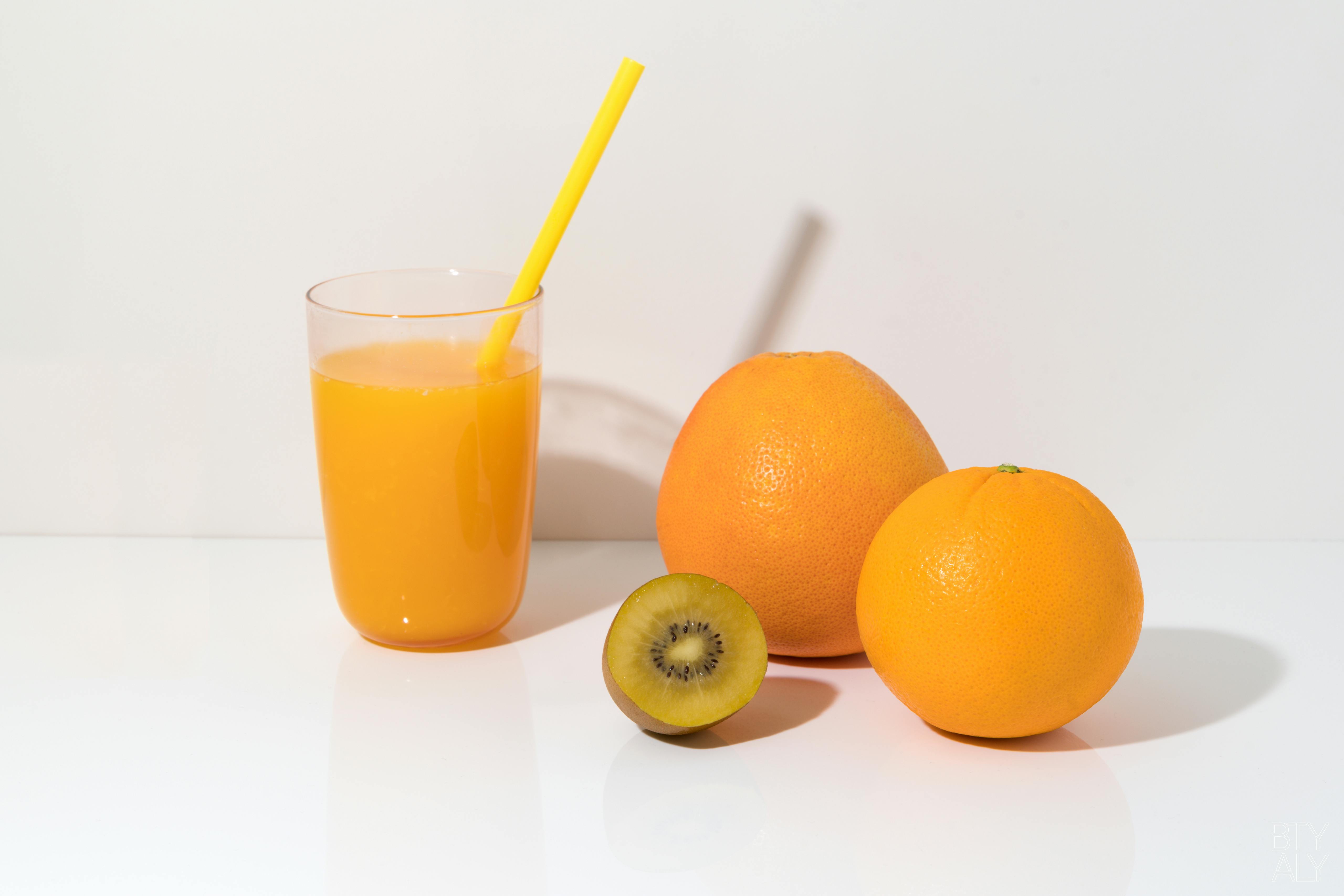
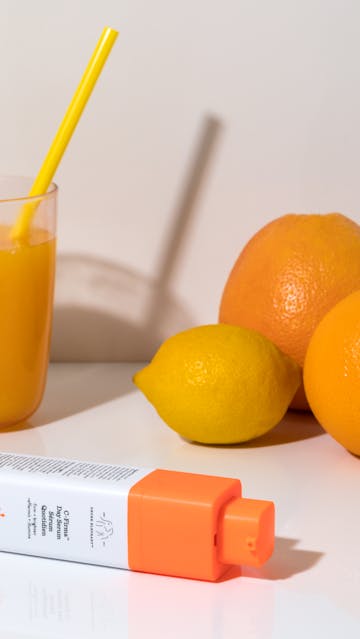
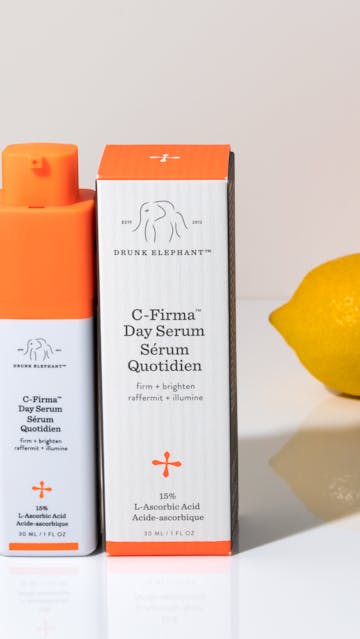
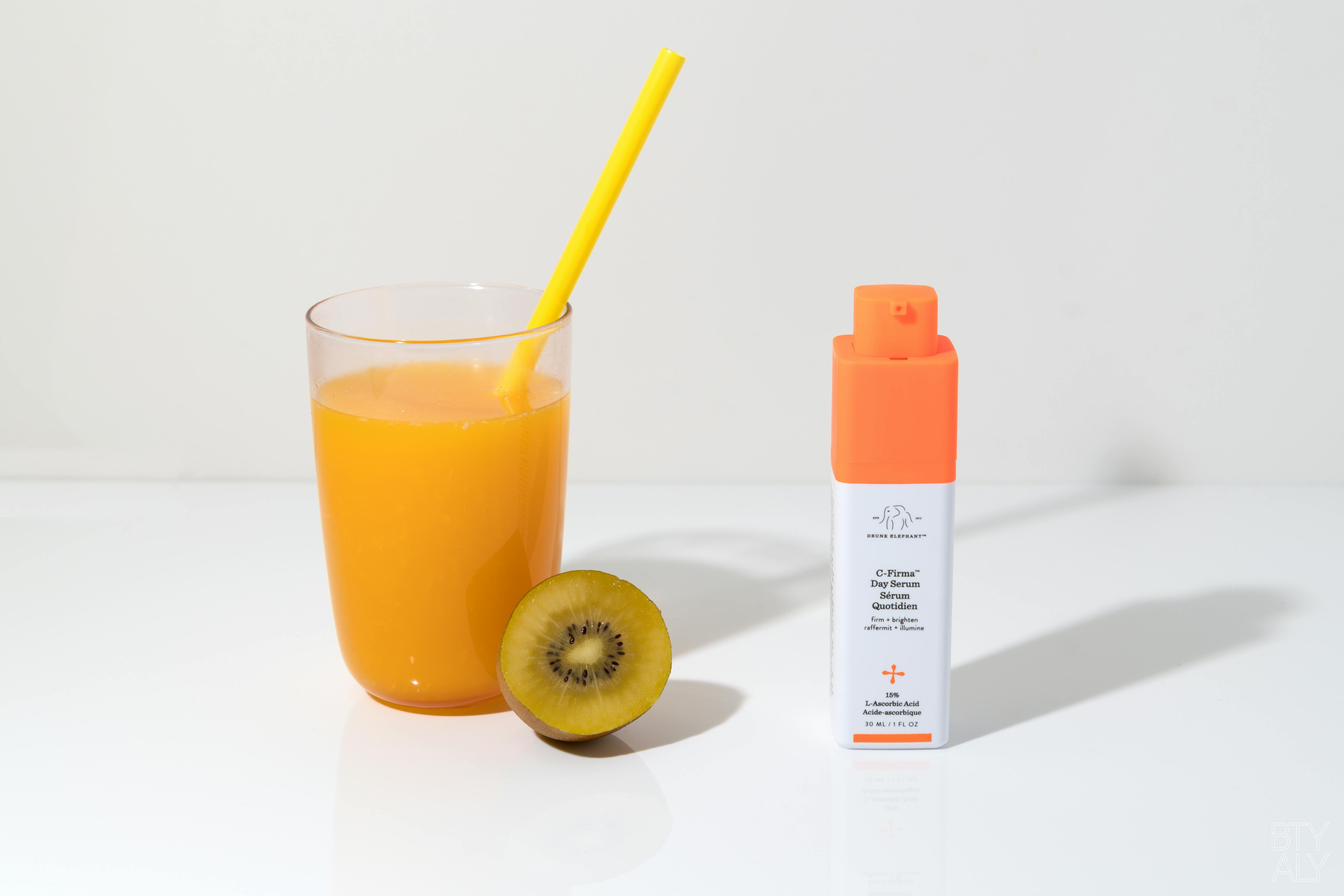
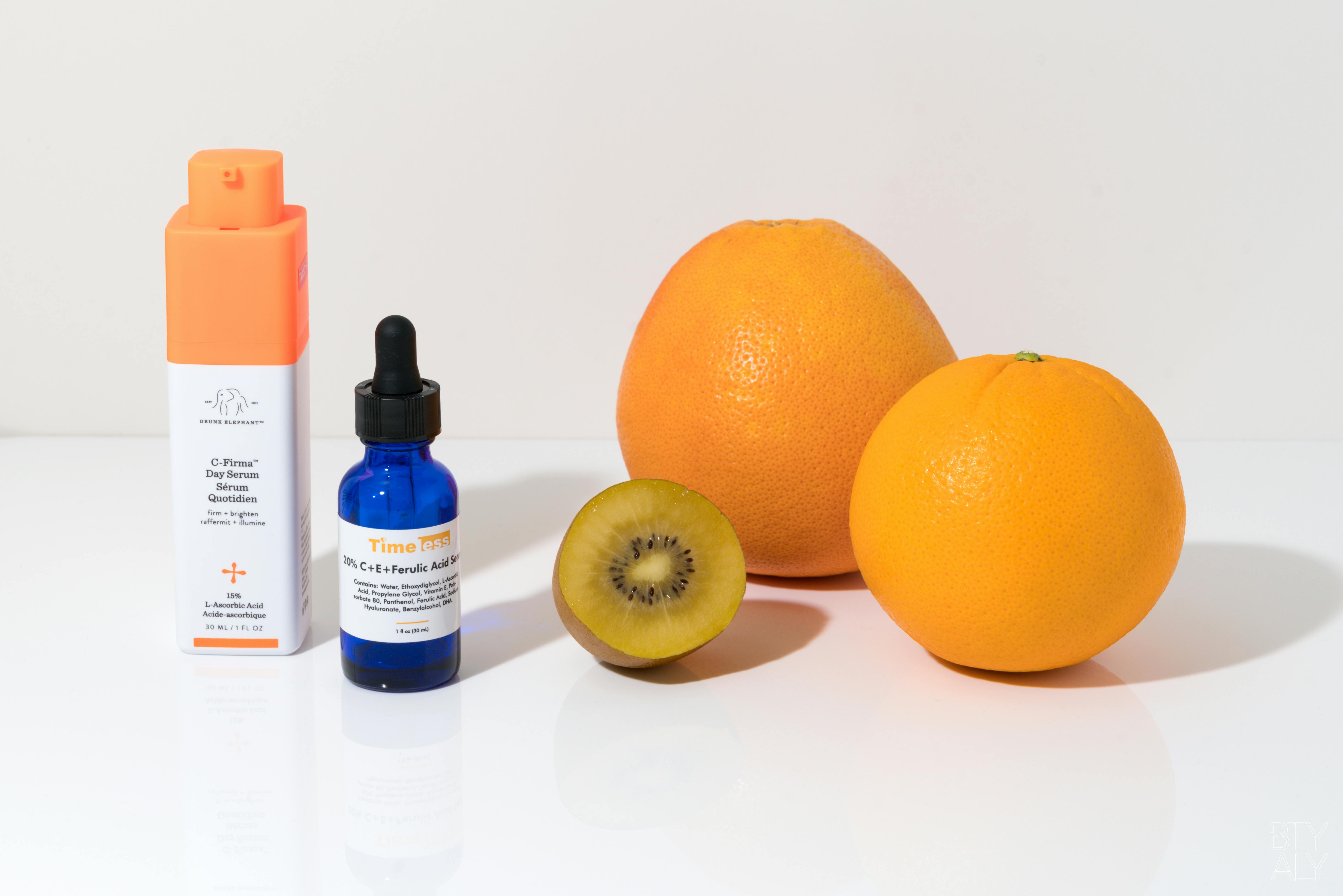
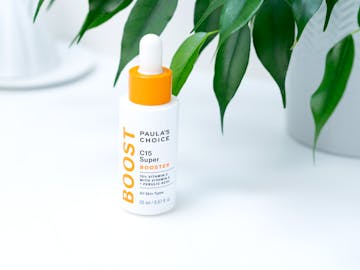
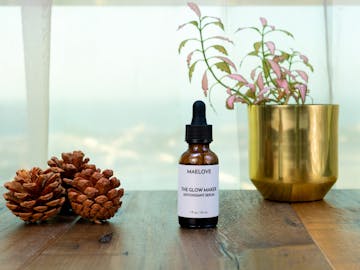
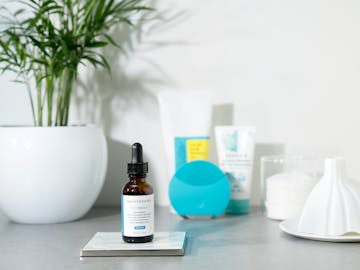
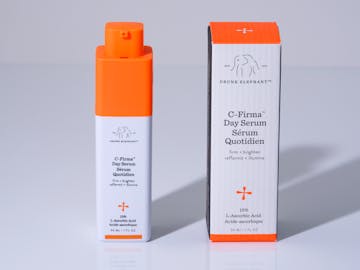
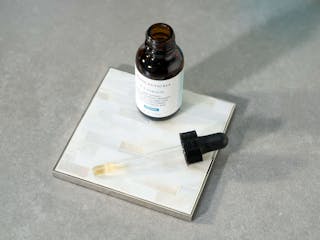
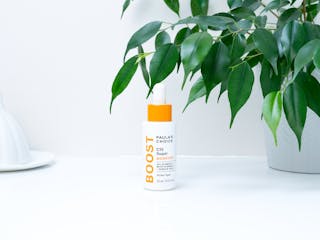
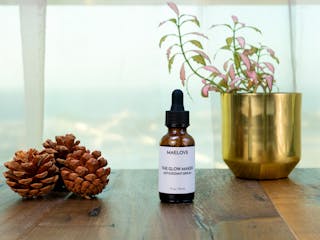
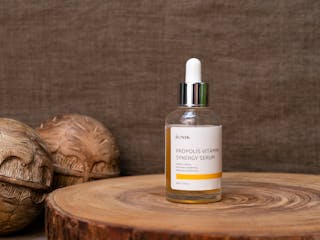
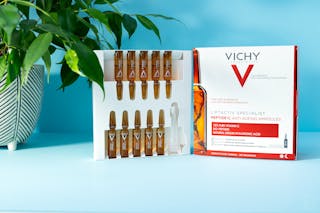

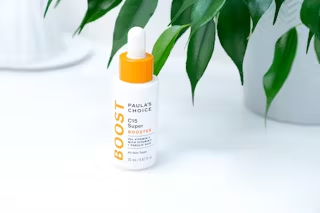
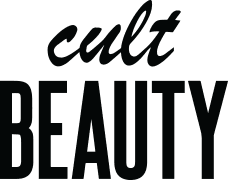
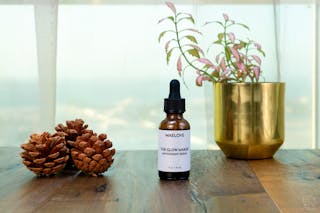
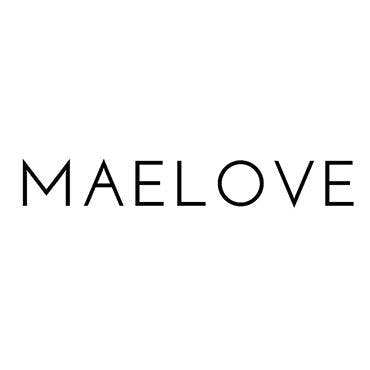
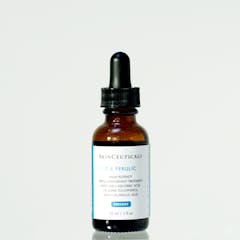
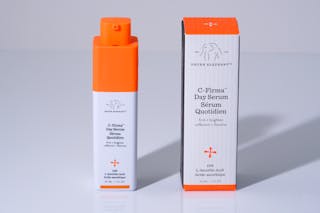
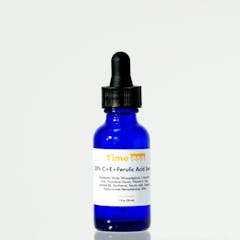











Very interesting article, as always.
Have you ever tried the CosRx Triple C?
Thank you so much Noelle ❤️ No, I didn’t try it (yet!). I’m using the Paula’s Choice at the moment, I’ll do a review soon ?
If you ever get your hands on the Japanese product Obagi C25 Serum Neo, you should absolutely try it. It’s my be all end all vitamin C serum.
Thank you for this excellent article, very informative.
Thank you very much! I’m super intrigued by this Obagi serum now, thanks for the recommendation, I’ll check it out! 🙂
Hi Bonnie!
I adore your website and find your articles very informative. Now in my thirties, I am more and more interested in the subtleties of skin care and the different beneficial ingredients.
I would love it if you added to your articles the date at which they were written. That way, we can follow you as you discover better or more interesting products as time passes.
Keep up the great work!
Thank you very much ☺️ ❤️ I agree with you, I think it’s a great suggestion and I will ask my technical team (aka my husband lol) to see what we can do about it 😅
Hello,
I was wondering if you had thoughts about the hada labo melano cc essence?
Thanks for your detailed reviews, I enjoy them very much.
Hi! 🙂
I tried this product a while ago; I really liked the packaging, super clever, but the formula was a bit too “greasy” for my liking and it was also quite fragranced. I ended up using it on my hands, to help brighten the few dark spots I have there, and it helped a little 🙂